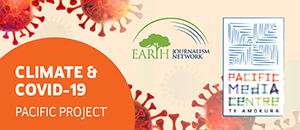By Finau Fonua, RNZ Pacific journalist
Uike Kātoanga’i ‘o e lea faka-Tonga, or Tongan Language Week, is under way with schools and community groups organising events throughout the country.
According to Statistics New Zealand, there are more than 82,000 people of Tongan heritage living in New Zealand, and there are concerns about younger generations of Kiwi-Tongans losing their mother tongue.
“A lot of our kids unfortunately don’t grow up in households where Tongan is spoken as a first language, and this is one of the goals of language week is to encourage our young people to learn about our language, to learn about our culture”, said Jenny Salesa, a Labour MP of Tongan heritage.
“The majority of our Tongan people here in Aotearoa now, are born and raised here. I think over 60 or 70 percent.”
Salesa, who helps organise the annual event, said she haD heard during her public consultations that many young Kiwi-Tongans complainED of an identity crisis, and said language weeks were a temporary relief for many young Pasifika who felt culturally marginalised.
“Some of them say they would just like to be acknowledged as a Tongan and not just during language weeks where we encourage and acknowledge Tongan in their school,” she said.
“They would like their identity and their language to be acknowledged throughout the whole year and not just within one week.”
The theme for this year’s Tongan Language Week is Ke Tu’uloa ‘a e lea faka-Tonga ‘i Aotearoa or “Sustaining the Tonga Language in Aotearoa”.
It’s unpoetic compared to highly metaphorical themes in previous years, but the message reflects the primary purpose behind the event.
“Sadly, only 12 percent of Tongans under 15 speak the language in New Zealand. That’s a decline of 9 percent since 2006,” said the Minister for Pacific Peoples, Aupito William Sio, who officially launched the week at Otahuhu College, Auckland.
“Language week is the ideal time to revitalise lea fakatonga, and embrace our Tongan brothers and sister culture, values and traditions,” he said.
Annual Pasifika language weeks have been in place in New Zealand since 2010, and have been promoted aggressively by the Ministry for Pacific Peoples.
‘Speaking the language of your heritage strengthens self confidence’
Singing and dancing have been key components of Tongan Language Week. Traditional Tongan dances have been performed by Tongan and non-Tongan students in school assemblies throughout the country.
Otahuhu College Tongan language teacher Tina Otunuku said traditional dances were performed by students at their school assembly on Tuesday. She said the cultural performances brought out the “mafana” or warmth of spirit.
“The highlight of the day was a performance from disabled and special needs children, and they did well. All the students joined in. We didn’t expect that to happen, it was incredible”, said Otunuku.
“Maintaining your lea fakatonga (Tongan) or Pacific language here in Aotearoa, helps you to value your culture and heritage which contributes to a positive self conscious. Knowing how to speak the language of your heritage, strengthens your self confidence.”
Otunuku said a common mistake made by immigrant parents in New Zealand was to discourage their immigrant children from speaking their native tongue in the belief it would improve their schooling.
“When students who are not yet fluent in English, switch to using English only, they are functioning at an intellectual level below their age. In this manner, it is likely to result in academic failure and this is what happens to a lot of Tongan students here.”
“You know students who learn English and continue to develop their mother tongue, have higher economic achievement in later years, than students who learn English at the expense of their native language.”
Tongan princess launching learning app
As part of the week, a Tongan language learning app is being launched at Parliament in Wellington on Saturday by Tongan Princess Angelika Lātūfuipeka.
Wellington Tongan Leaders Council President Taetuna’ula Tuinukuafe said the app is dedicated to teaching the Tongan language which will be made accessible worldwide.
Tuinukuafe said that while the app is intended for Tongan children who live overseas, it can be used by anyone who has an interest in learning the Tongan language.
“Our young people who are growing up here are not connected to our community and our culture. For the Tongan statistics more than half or 53 percent or so that are born here in New Zealand and they need to understand and learn the language and communicate with their fanau.”
This article is republished under a community partnership agreement with RNZ.
